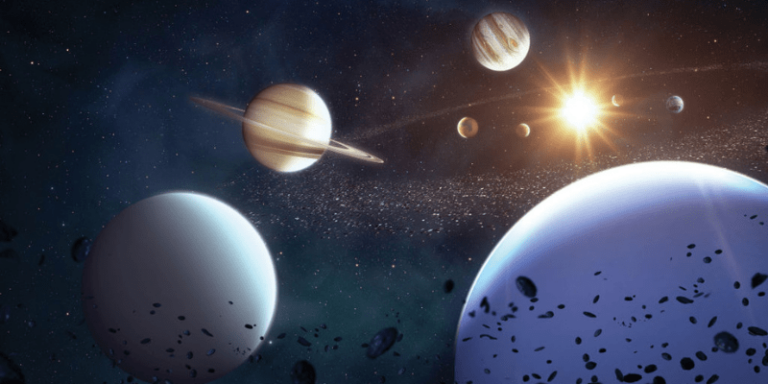Does Intelligent Life Exist Elsewhere in the Universe?
Is our planet’s perfect formation proof that there’s more life out there, or that we’re alone?
By: Andrew Moran | February 26, 2020 | 466 Words

(Illustration by Tobias Roetsch/Future Publishing via Getty Images)
Are we alone in the universe, or is there intelligent life out there, somewhere? As vast as the universe is, surely, there must be at least one other advanced civilization somewhere out there in the deepest recesses of space. Or perhaps we have taken for granted that Earth is a very special case.
In 2000, scientists Peter Ward and Donald Brownlee wrote a book titled Rare Earth: Why Complex Life Is Uncommon in the Universe. It explored the Rare Earth Hypothesis, which states that extraterrestrial life is more likely to be rare than common throughout the cosmos. When you consider the myriad elements that have led to our creation – and our survival – you might decide that we are an evolutionary mistake. We are a species that is lucky to be around. We are amazing.
Jupiter
Jupiter has served as our guardian of the galaxy for millions of years. Due to its massive gravitational pull, the gas giant has attracted a lot of asteroids that might otherwise have hit Earth.
The Moon
The Giant Impact Hypothesis states that a moon-sized celestial object (Theia) crashed into early Earth (Gaia) billions of years ago. The debris of these two objects helped form our only satellite: The moon. Its orbit and gravitational pull tilt the earth 23 degrees, which produces tidal waves that help slow down our rotation that allows life to exist (too fast of a rotation can create deadly natural disasters). The moon also stabilizes our planet so it does not wobble.
Size and Shape
 What if Earth had a different shape or if it were bigger than it is? For one thing, if our planet were larger and stretched out, our bodies of water would be shallower, risking evaporation and drying out.
What if Earth had a different shape or if it were bigger than it is? For one thing, if our planet were larger and stretched out, our bodies of water would be shallower, risking evaporation and drying out.
The biggest concern, however, is our mass. The sun currently accounts for 98% of the mass in our solar system. If the earth and the sun split the mass, it would have devastating consequences, such as saying destroying the moon, experiencing more asteroids, and welcoming a binary Earth-Sun system that would eventually devour itself.
Sunny Ways
What if our sun had a larger mass? It would have swallowed us whole a long time ago. What if our sun had a smaller mass? We would transform into a rogue planet, a wandering body without a star-system to call home. What if we orbited a binary star system? Our orbit would likely be unstable.
How Are We Still Here?
Is our existence an evolutionary accident? Are we a miracle? All it would take to end us is an asteroid to bypass Jupiter, a rogue planet to enter our solar system, or our core to cool down, diminishing our magnetosphere enough to strip away our atmosphere. When you consider all the possibilities, you have to ask: How are we still here?
















